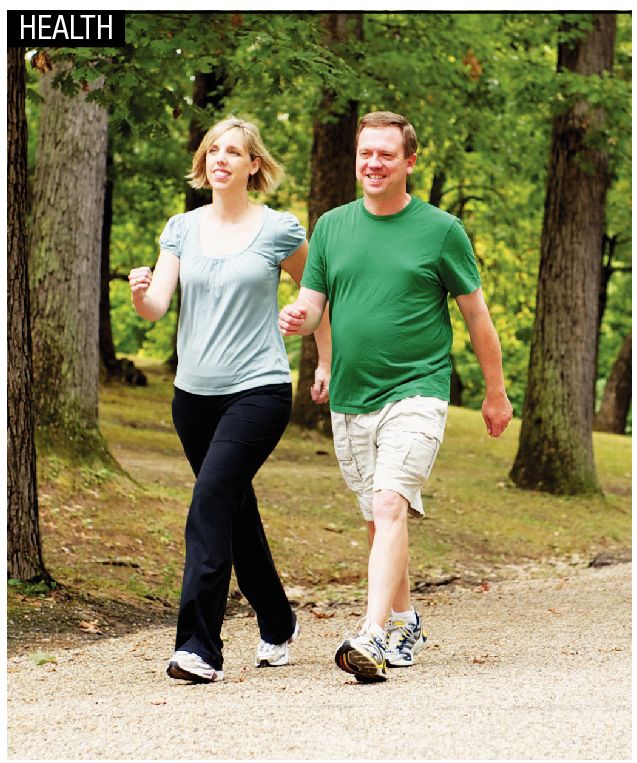
Get back to basics
continued from page 13
“Exercise is more likely to be fun and frequent if it’s done as a group,” Pratt says.
Stress-management basics
The bad news is stress doesn’t go away. It’s part of life.
The good news is you can deal with stress through a variety of simple strategies. Doing so brings physical and psychological benefits.
“When you manage stress you prove you have control of one area in your life. That’s good because people feel so out of control,” says Piscatella, co-author of “Take a Load off Your Heart,” (Workman Publishing, 2003). You’ll also reduce a major risk factor for heart disease.
“Stress undermines cardiovascular health.
Stress increases your blood pressure regardless of your cholesterol levels and diet,” Piscatella says.
Exercising
will alleviate a lot of your stress. When you engage in physical activity your body builds up endorphins so you’re in a better mood. Whether you choose walking, running, biking or bowling, the activity is less important than doing it consistently, so choose something you enjoy and will stay with.
Breathing.
Everyone breathes, but when you turn off the computer, take the telephone off the hook and take a few deep breaths with your eyes closed so you can clear your mind of a dozen distractions. It’s free, fast and effective.
Unplug.
Set aside time each day to turn off your cell phone, walk away from your computer screen and relax. The world will not stop if you are out of reach for 30 minutes while you exercise, practice deep breathing or just close your eyes and let your mind wander to a peaceful place.
Health by the numbers
Four easy-to-remember numbers – 0, 5, 10 and 25 – are all you need to follow for good health.
0 is for smoke cessation. If you smoke, stop. 5 is the minimum of number of servings of fruit and vegetables you should be eating every day.
10 for the 10,000 steps (walking, running, doing errands) to take daily.
25 or less should be your body mass index (a ratio of your weight to height).
To find your BMI, multiply your weight in pounds by 700. Divide the result by your height in inches. Then divide again by your height in inches.